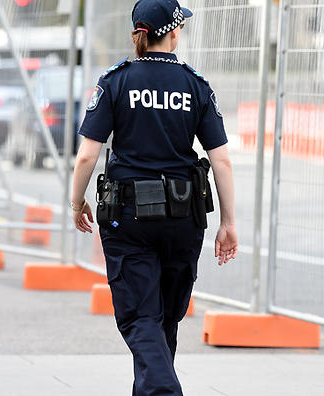QPS resists diversity
 A review of the Queensland Police Service (QPS) has revealed an entrenched system of racism, sexism, and exclusionary practices.
A review of the Queensland Police Service (QPS) has revealed an entrenched system of racism, sexism, and exclusionary practices.
The inquiry, initiated in response to findings from a 2022 Commission of Inquiry into QPS responses to domestic and family violence, involved interviews with over 2,800 current and former QPS staff.
Reports from participants included accusations of female officers being labelled as having “slept their way to the top” and racism being dismissed as “banter”.
The QHRC’s Strengthening the Service report (PDF), the first phase of a three-stage review, made 36 recommendations aimed at transforming QPS into an inclusive and diverse organisation.
These include revising recruitment and promotion policies, adopting external oversight for hiring standards, and setting diversity targets for leadership positions.
The review identified historical and systemic barriers as key contributors to workplace inequality.
Traditional policing norms, prioritising physical dominance and stereotypically masculine traits, have shaped the organisation's structure and culture. The resulting environment, according to the report, disadvantages women and culturally diverse officers while enabling discriminatory practices to persist.
The report emphasised that the issue is not limited to isolated incidents but is embedded in the system. It stated, “
Commissioner Steve Gollschewski acknowledged the confronting nature of the report’s findings, saying’ “We must learn from this and build on the courage of those who contributed as we strive to become a more inclusive organisation.”
The QHRC and QPS have committed to a collaborative approach to implementing changes. Within three months, QPS is expected to publish a formal response to the report, with a detailed action plan to follow within six months.
The review also highlighted significant resistance to diversity measures within the organisation.
Surveys conducted during the inquiry showed high levels of scepticism towards initiatives aimed at fostering inclusion. The report noted that redefining core values and addressing unconscious biases will be crucial for overcoming this resistance.
The QHRC’s recommendations include training for leadership in managing resistance and fostering a culture of respect.
“Resistance is a sign that real change is occurring… If QPS fails to effectively harness resistance, the reforms recommended in this report will be much harder to implement,” the report says.
The QHRC will monitor QPS's progress and conduct follow-up evaluations in 2026 and 2027 to assess the implementation of its recommendations.







 Print
Print



